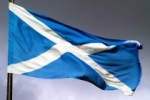Economic Value of Scots Gaelic Hailed by Highlands Business Partnership
The Highlands Council is the largest government area in the United Kingdom and spans the linguistic heartland of Scottish Gaelic. This press release (below) was posted on the Council’s website. The content demonstrates the economic value of the Celtic tongue to the economy of the Highlands and Inner Hebrides. The consensus amongst Linguists is that one of the most effective defensive strategies to defend and strengthen the status of minority or threatened languages is economic growth and wealth creation within the language area which in turn leads to greater political power and influence on governmental policy:
An independent report commissioned by the Council, Highlands and Islands Enterprise and other partners has highlighted that 60% of businesses surveyed felt that their use of Gaelic enhanced the value of the language within the community and Gaelic is an asset in particular when used to promote the creative industries, tourism, food and drink.
At today’s (Wednesday 18 February) Planning, Development and Infrastructure Committee, Councillors had a chance to discuss the report and the Council’s strategic approach to supporting the Gaelic language and culture to bring both economic and social benefits to the Highlands.
The key findings of the report are;
-
Gaelic is used by more than 60% of the businesses/social enterprises respondents, as a key element of their main activities, products or services;
-
almost 2/3 of businesses consulted saw Gaelic as being an important element in the success of their business;
-
Gaelic is particularly important to businesses operating in the Creative Industries;
-
70% of businesses recognised Gaelic as an asset to their business;
-
almost 60% of businesses/social enterprises that already utilise Gaelic see additional opportunities to make more use of the language;
-
1/3 of businesses that saw the language as an asset, provided measurement of the value to their businesses. Of these 34 businesses, the turnover attributed to the impact of Gaelic was in the region of £4million; and
-
60% of businesses surveyed felt that their use of Gaelic enhanced the value of the language within the community.
Chair of the Committee, Councillor Thomas Prag believes the research demonstrated the importance Gaelic plays to the economy of the Highlands. He said: “Highland Council and our partners’ support have been crucial in reversing the decline of the Gaelic language. The Highland Council’s Gaelic Language Plan clearly states our commitment to create and support initiatives that strengthen the use and raise the profile of Gaelic within economic development and tourism in the Highlands.
“We are keen to highlight the results of this Research which demonstrates which provides evidence to show that there are real economic benefits as well as the more obvious cultural and heritage benefits. By commissioning the report we now have better data on economic activity and commitment related to Gaelic, so we will be better informed when making future decisions.
He added: “The findings of the report show that Gaelic can really enhance the distinctiveness and uniqueness of both products and services and shows that the support we are giving, particularly within the creative industries, is having a positive effect. Last year’s Royal National Mòd in Inverness generated an astonishing £3,547,661 to the business community in the city, over a £1million more than the original target. Being able to attract high profile Gaelic related events such as the Mòd and the Scottish Trad Awards, plus hosting the annual Blas Festival is a great bonus to the Highlands and we look forward to hosting the Celtic Film and TV Awards in Inverness in April.”
Rachael McCormack, Director of Strengthening Communities, HIE, said: “When we talk about Gaelic, the emphasis is often on the need for public support to ensure the language can survive and grow. Until now, much less has been said about its important role as a valuable economic and community asset, which has great potential to make a positive and measurable contribution to Scotland.
“Our study demonstrates that Gaelic not only plays a unique role in Scottish culture, but can be viewed and used as an asset in a range of fields, particularly the sectors of creative industries; food and drink; education and learning, heritage and tourism.
“These findings lay a baseline for further research and will inform actions which HIE and our partners will take in future to support businesses and communities which can benefit from developing their use of Gaelic, and make a wider contribution to overall economic growth.”
The report can be found on HIEs http://www.hie.co.uk/community-support/support-for-gaelic-development/gaelic-research.html
Map of Highlands Council area courtesy of Wikipedia:

http://www.highland.gov.uk/news/article/8390/economic_and_social_value_o...

- Emmett McIntyre's blog
- Log in to post comments






